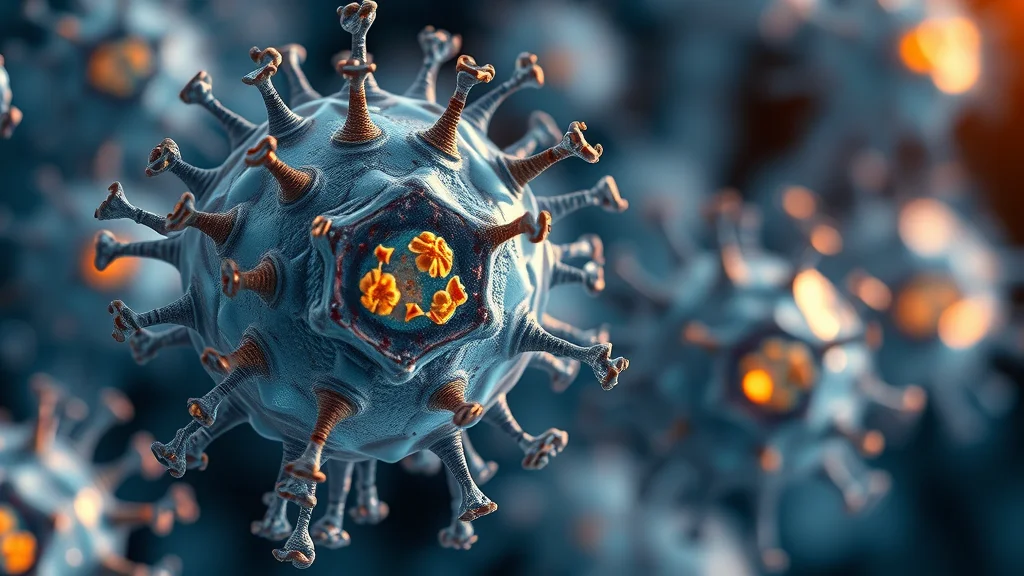Startling Statistic: Did you know persistent stress can make your body up to 10 years older—not just in how you feel, but deep within your cells? This article unravels the science behind why stress ages you faster than you think, and how you can defy the toll it takes on both your looks and longevity.
Unveiling the Truth: Stress Ages You Faster Than You Think
When we think about the aging process, most of us imagine wrinkles, gray hairs, and the gradual changes we see in the mirror over decades. But here’s the hidden reality: chronic stress can radically speed up this process, not just on the surface but at a deep, cellular level. Recent research found that the accumulation of stressful events—ranging from a single emergency surgery to unrelenting work deadlines—can alter your biological age, marking you as much older than your chronological age. This means that even if the calendar says you’re 40, inside, your cells could be functioning more like those of a 50-year-old. The culprit? The stress hormone cortisol, a hyperactive nervous system, and the relentless impact of oxidative stress.
Understanding how stress ages you is crucial because this knowledge empowers us to take proactive steps toward a healthy life. Unlike age recorded by years, biological aging reflects the cumulative damage to your tissues and DNA—damage profoundly influenced by psychological stress and your body’s stress response. If you’ve ever noticed your skin looking more tired or lines deepening after a period of high stress, you’re seeing these effects in real time. The good news? By addressing stress, you have the power to not just feel but truly become younger—inside and out.

Startling Statistic: The Hidden Impact of Chronic Stress on Biological Age
"Recent studies reveal that persistent stress can accelerate aging at the cellular level, marking individuals up to 10 years older biologically than their peers."
What does this actually mean? In landmark studies using biomarkers like telomere length and the epigenetic clock, researchers documented that people exposed to high chronic stress have cells with shorter telomeres and altered DNA methylation patterns. These changes reflect years—sometimes a decade—added to your biological age. So, when you experience ongoing psychological or physical stress, your body literally shows the wear and tear, accelerating the aging process beyond your actual number of years.
The effect is so profound that leading health organizations, including gov websites from the United States, now recognize chronic stress as a major risk factor not only for mental health struggles but also for chronic diseases linked to aging like high blood pressure, diabetes, and even cognitive decline. The message is clear: stress isn’t just a mental burden—it’s an aging accelerator at every level of your being.
What You’ll Learn in This Article
How stress ages you at a cellular and visual level
The roles of cortisol, oxidative stress, and psychological stress
Preventative strategies to protect your mental health and biological age
Expert perspectives on reversing accelerated aging caused by chronic stress
The Science Behind Stress and Accelerated Aging
What is Biological Age?
Biological age is an advanced measurement of how well—or poorly—your body is functioning relative to your chronological age. Unlike your date of birth, biological age hinges on your cells’ health, often evaluated through markers like telomere length, DNA methylation profiles, and the state of your cell division processes. Scientists now use these measures to gauge “real” aging, which is why someone exposed to chronic stress and a stress response overload can seem—and test—years older than they are. It’s this gap between how we look or feel, and how our bodies actually function, that makes understanding biological age so critical.
Factors influencing biological aging are complex and involve a mix of cell metabolism, cellular damage repair mechanisms, and genetic factors. However, modern studies, including those by the official website of the CDC, underline how persistent psychological stress and exposure to reactive oxygen species (unstable molecules causing cell damage) tip the scales toward premature aging. This is why two people with the same number of years can look— and be—decades apart in true age.
Chronic Stress: From Everyday Pressure to Accelerated Aging
Everyone encounters stress, but what happens when that stress becomes relentless? That’s where chronic stress comes in—a state where the nervous system stays switched “on”, keeping the body flooded with cortisol and adrenaline. Over time, this continuous stress response prompts accelerated aging both visibly on your skin and invisibly in your organs and DNA. Studies have shown that ongoing stress can cause telomere shortening (the protective caps on your chromosomes), making your cells less capable of healthy division and repair.
The process is insidious. Chronic psychological or environmental stress—from work, relationships, or even extreme stressful events—triggers inflammation and oxidative stress. This gives rise to more reactive oxygen species, further damaging cells. According to publications on gov websites and peer-reviewed research, these changes are not just theoretical: they can be measured and reversed through interventions such as mindfulness, nutrition, and a healthy lifestyle. So, recognizing the signs of stress ages you can be the first step toward restoring your mental and physical vitality.

Oxidative Stress: The Cellular Culprit
Oxidative stress is the cellular villain in the story of how stress accelerates aging. When your body is under long-term psychological or physical stress, it produces an excess of reactive oxygen species—unstable molecules that harm DNA, proteins, and cell membranes. Normally, your body’s antioxidant defenses keep these in check, but with chronic stress, the balance tips, leading to cellular damage and impaired cell metabolism.
Over time, this damage manifests as everything from fine lines and dull skin to more profound issues like weakened immune function or increased risk of chronic disease. The aging process isn’t just about accumulating years; it’s about accumulating oxidative fallouts that impact your appearance, your mental health, and your long-term vitality. By understanding the role of oxidative stress, you can see why managing environmental and psychological stress isn’t a luxury—it’s a necessity for maintaining youth and a healthy life.
How Stress Ages You: Comparing Chronological Age vs. Biological Age | |||
Chronological Age |
Low-Stress Biological Age |
High-Stress Biological Age |
Visible Effects |
|---|---|---|---|
35 |
33–36 |
39–45+ |
Fewer wrinkles, healthy skin, vibrant energy vs. premature wrinkles, dullness, gray hairs |
50 |
48–51 |
55–60+ |
Normal aging markers vs. deep lines, thinning hair, fatigue |
60 |
59–62 |
67–75+ |
Graceful aging vs. rapid skin laxity, pronounced age spots |
The Cortisol Effect: Why Stress Ages You Inside and Out
How Cortisol Influences Skin, Hair, and Vital Organs
Cortisol, often dubbed the body’s “stress hormone,” is a double-edged sword. While it’s vital for the body’s short-term survival—helping you respond to emergencies or stressful events—persistent high levels have serious downsides. Elevated cortisol breaks down collagen and elastin in the skin, leading to lost elasticity, fine lines, and even adult acne. Hair can thin or turn gray due to stress-induced hormonal changes and a disrupted vagus nerve network. Internally, excess cortisol promotes inflammation and drives oxidative stress, damaging organs from your heart to your brain.
Scientific studies published on the official websites of health organizations further highlight cortisol’s role in not just physical but mental health as well, linking it to anxiety, depression, and memory impairment. This “inside-out” aging process reveals why those under chronic stress can look—and feel—years older than their actual age. Fortunately, there are ways to reduce cortisol naturally, altering both your biological age and your visible appearance.

"Cortisol not only affects your mental health, it leaves a lasting mark on your skin and organs, accelerating the aging process." – Dermatologist Insight
Psychological Stress and Its Lasting Imprint on Beauty and Well-being
Mental Health, Appearance, and Perceptions of Age
The connection between mental health, psychological stress, and how old we look is stronger than most people realize. Stress takes a toll not just emotionally but physically, often showing up first as tired eyes, sagging skin, or lackluster hair. But beneath the surface, psychological stress drives changes in inflammation levels, immune system function, and even how our bodies repair daily wear and tear. Experts now warn that chronic stress can affect the epigenetic clock, changing gene expression in ways that ramp up accelerated aging.
Studies highlight that maintaining mental health is as critical for youthful appearance as skincare routines or diet. Chronic anxiety or depression, if unchecked, raises cortisol, increases oxidative inflammation, and alters telomere length. In short, your thoughts, emotions, and mental and physical health together sculpt your outward features and inner resilience against the aging process. Paying attention to stress isn’t vanity—it’s foundational for retaining youthful vitality.
Lifestyle Factors: Where Stress and Accelerated Aging Collide
Your daily habits can either accelerate or decelerate the aging process, especially when it comes to chronic stress. Smoking, poor nutrition, lack of sleep, and a sedentary lifestyle all intensify the body’s stress response and promote oxidative stress. These habits slow cell repair, degrade collagen, and leave you more vulnerable to the effects of stress, including high blood pressure and reduced vitality.
On the flip side, adopting a healthy lifestyle—rich in antioxidants, balanced in movement and rest, and supportive of mental equilibrium—can help you resist or even reverse some signs of premature aging. Regular exercise, quality sleep, and positive social connections are shown to decrease stress hormones and protect telomere length, giving you a biological edge in the fight against accelerated aging caused by daily pressures.
Common Signs That Stress Ages You:
Sudden appearance of gray hairs
Fine lines and deeper wrinkles developing quickly
Tired, puffy eyes or dark circles
Dull, uneven skin tone
Hair loss or brittle nails
Unexplained fatigue and frequent illness

Expert Insights: Can You Reverse the Impact When Stress Ages You?
Strategies for Lowering Biological Age and Combating Accelerated Aging
While we can’t stop the march of time, you have more control over your biological age than most realize. Leading researchers and wellness experts agree that potent stress management tools can slow, halt, and even partially reverse certain aspects of accelerated aging caused by chronic stress.
Mindfulness and meditation: Proven to lower cortisol and reduce the impact of psychological stress. Techniques such as mindful breathing, yoga, or guided meditation activate the vagus nerve, resetting your nervous system for repair and rejuvenation.
Nutrition for cellular repair: Antioxidant-rich foods (berries, leafy greens, nuts) help neutralize reactive oxygen species and support DNA integrity. Supplements like vitamin C, E, and coenzyme Q10 can boost the body’s response to oxidative stress.
Exercise and quality sleep: Physical movement triggers feel-good hormones that buffer the toll of stress, while sleep allows for daily cell repair, protecting telomere length and the epigenetic clock.
The bottom line: Your future self will thank you for taking stress seriously. It's not just about looking young—it's about ensuring your body's systems, from immunity to cognitive function, remain as resilient and vibrant as possible.
"Reducing stress isn't just about feeling better today – it's an investment in your future appearance and health." – Well-being Expert
People Also Ask: Addressing Reader Questions on Why Stress Ages You Faster
Can aging from stress be reversed?
Answer: While completely reversing aging is not currently possible, adopting stress management techniques can slow or sometimes partially reverse stress-related cellular aging.

How quickly does stress age you?
Answer: Chronic stress can have a measurable impact on your biological age in as little as a few months, but individual results vary based on genetics and stress management practices.
What's the number one thing that ages you?
Answer: Chronic psychological stress is a leading factor that accelerates both visible and biological aging, exceeding even sun exposure if left unmanaged.
Can stress cause accelerated aging?
Answer: Yes, research consistently shows that ongoing stress hastens signs of aging at the cellular, physical, and mental levels.
Real Stories: When Stress Ages You in Everyday Life
"I noticed gray hairs and fine lines after a tough year—stress ages you, and I learned it the hard way."
For many, the visible reminders of stress ages you hit home only after a marathon stretch of stressful months—a difficult work period, caring for a loved one, or recovering from emergency surgery. These personal stories echo scientific evidence: our emotional and psychological burdens don't just fade—they etch themselves onto our faces and bodies, serving as a powerful call to prioritize mental health and self-care before stress becomes a permanent part of our age.
Watch an illustrated explainer on how cortisol travels through your body, impacting skin, hair, and beauty from within—see the difference between stressed and relaxed physiology in real time.
FAQs: Common Questions About How Stress Ages You
Why does stress show up on your skin before anywhere else?
The skin is highly sensitive to hormonal fluctuations and inflammation caused by stress. When cortisol levels spike, it breaks down collagen and disrupts blood flow, often leading to dullness, breakouts, and premature lines faster than nearly any other visible area.Are there supplements that help when stress ages you?
Yes, antioxidants like vitamins C and E, as well as adaptogens such as ashwagandha, may help repair some of the cellular damage caused by oxidative stress, but always consult your healthcare provider for personalized advice.Does every type of stress age you equally?
Not all stress is equal. Chronic psychosocial stress is shown to have a deeper impact on both cellular and visible aging compared to short-term or low-intensity stress. How you respond and recover makes a significant difference.How do you know if you have accelerated aging due to stress?
Warning signs include sudden increases in wrinkles, hair loss, or fatigue after prolonged stress, but advanced tests like telomere measurements or biological age assessments can give clearer answers. Consult with healthcare professionals for a comprehensive evaluation.
Key Takeaways from the Cortisol-Beauty Connection: Why Stress Ages You
Chronic and psychological stress accelerate biological age
Cortisol is a primary player when stress ages you
Managing stress can help reverse or slow down visible aging

 Add Row
Add Row  Add
Add 




Write A Comment